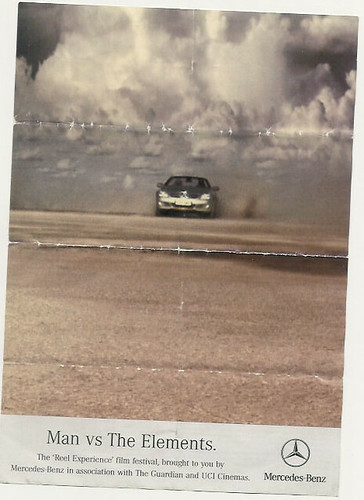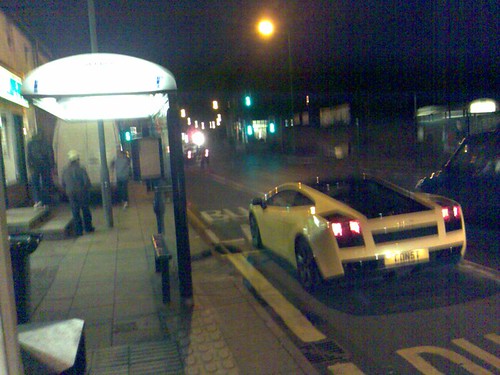 Somewhere in his remarkable documentary book on migrant workers, A Seventh Man, John Berger makes the point that, depending on who you are, 'reality' differs not just subjectively, but objectively. In the same way that our constellations would be unrecognisable to a visitor from elsewhere in the universe, so the facts of our own world constellate differently according to where we find ourselves within it. It is a classic Berger insight, the painter's feel for perspective combined with a humane, reflective yet uncompromising political engagement - an insight I found myself coming back to last night as I watched Alejandro González Iñárritu's Babel.
Somewhere in his remarkable documentary book on migrant workers, A Seventh Man, John Berger makes the point that, depending on who you are, 'reality' differs not just subjectively, but objectively. In the same way that our constellations would be unrecognisable to a visitor from elsewhere in the universe, so the facts of our own world constellate differently according to where we find ourselves within it. It is a classic Berger insight, the painter's feel for perspective combined with a humane, reflective yet uncompromising political engagement - an insight I found myself coming back to last night as I watched Alejandro González Iñárritu's Babel.
Critics have talked about this as a film of chance, of the 'butterfly effect' linking a series of characters around the world: the Moroccan shepherd who gives his sons a gun to shoot jackals; the American tourist who is accidentally shot, and her husband; their children and the Mexican maid who cares for them; the Japanese man who once owned the gun and his deaf-mute daughter. There are certainly moments in the film which suggest the sentimental 'We-Are-the-World spectacle' which Peter Bradshaw damns it as. But he is surely wrong in suggesting that the irony to which this 'unity' is subjected could be unintentional.
This is not a film about chance, but about the extent to which the consequences of chance events are determined by our place in the world. It is a film about fairness, about how our assumptions and our sense of entitlement are shaped by where we are born. Linked as they are by the common ground of desire, loss and vulnerability, the lives of the characters diverge according to whether they belong to the rich or the poor world. Nowhere is this clearer than when the young American boy turns to the Mexican maid and asks, "Why do we have to hide, if we didn't do anything wrong?" The question is not simply childlike in its innocence, it typifies the culpable childishness of the rich world which echoes through the film.
For example, when the American woman is shot, her coach is forced to divert from the tourist trail, into the tour guide's home village. As her husband tends to her, the other passengers' fear of terrorists is inextricable from their revulsion at the poverty of the village, and breaks out in a series of tantrums as they demand that the driver switch on the air conditioning or that the bus leaves the couple behind. While the nightmarishness of their situation makes it understandable, it is hard not to recognise in their behaviour an anger at not getting our own way that is a feature of daily life in our consumer societies. We become incensed at any personal experience of injustice, of having our rights infringed, yet remain deaf to the unfairnesses of the world at large.
The residents of the poor world, on the other hand - Moroccan villagers beaten up by police searching for the 'terrorists', the Mexican maid receiving summary justice from a US border guard - are unillusioned. As in Berger's stories and essays, there is a sense here of the wisdom of the poor: it is not that poverty is idealised or that the poor are presented as morally superior, but that from their side of the boundary, certain things are obvious which from ours require a critical and imaginative insight which a blizzard of media and advertising and the sheer pace of life tends to obscure.
'In the kingdom of ends,' wrote Kant, 'everything has either a price or dignity.' Near the end of the film, as a helicopter arrives to airlift the American couple to hospital, the husband tries to push a fistful of bank notes on the Moroccan tour guide on whom they have depended since the shooting. He refuses. In the rich world, we are often tempted to the childish belief that money can fix everything. Seen from here, economic development appears to represent the transcendence of the tragic aspects of human existence. Might it not, in fact, mean their externalisation from our world, onto the lives of those for whom the facts constellate differently?












